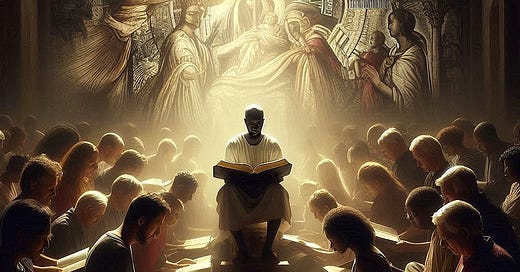There is clarity when we recognize that the Bible gives voice to the oppressed rather than the dominant. History often glorifies the powerful, but Scripture, especially through the Gospels, centers those who have been excluded. That changes how we read, how we listen, and how we live. Reading from the underside of history confronts us with hard truths. It disrupts comfort and invites us into solidarity. Those who control the narrative have shaped the Church for centuries, but the original message was not meant to uphold systems of privilege. Once Christianity became the established religion of the Roman Empire (after 313 CE), we largely stopped reading the Bible from the side of the poor and the oppressed. Our commitment must be to the vulnerable, not to the institution. That is where transformation happens—where no status protects us and truth can take root.
May our reading of Scripture
always begin from the margins,
where truth is not controlled but revealed.
(inspired by Richard Rohr, Yes, And…; Scripture as Liberation)




